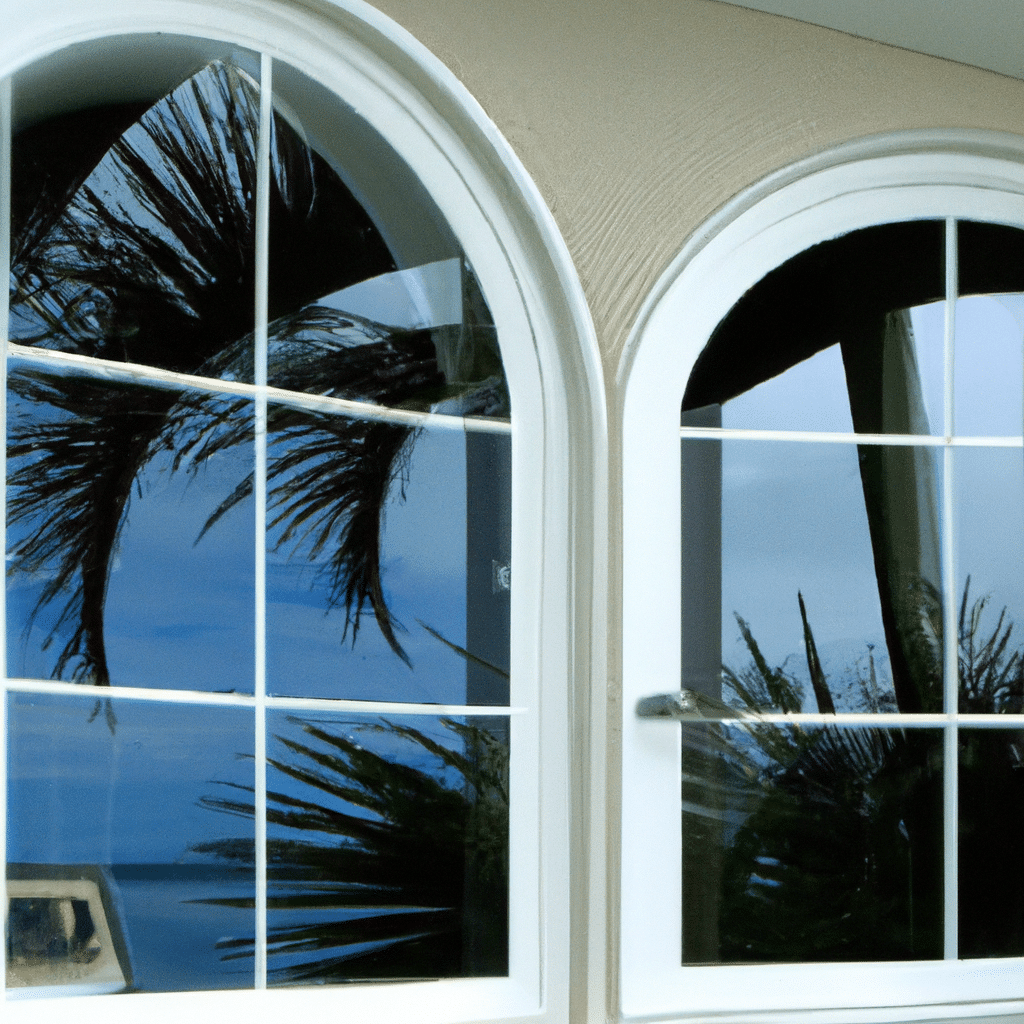If you’re a homeowner in Florida and considering installing impact windows, you may be wondering if there are any tax credits available to help offset the cost. Impact windows are specially designed to withstand hurricane-force winds and provide added security to your home. In this article, we will explore whether there are any tax incentives or credits available for installing impact windows in the sunny state of Florida. So, sit back, relax, and let’s uncover the possibilities together. This is a common question many Florida homeowners ask when considering the installation of impact windows. Impact windows, also known as hurricane windows, are specially designed to withstand strong winds and flying debris during hurricanes and tropical storms. They are made with multiple layers of reinforced glass and a strong frame, providing an extra layer of protection for your home.

What are impact windows?
Definition of impact windows
Impact windows, as the name suggests, are windows that are specifically designed to withstand the impact of flying debris during hurricanes and other severe weather events. These windows are constructed with multiple layers of laminated glass, which are bonded together with an interlayer of plastic. This construction makes the windows highly resistant to shattering, protecting your home from potential damage.
Features of impact windows
Impact windows come with several features that make them highly effective in protecting your home during severe weather conditions. Some of these features include:
- Multiple layers of reinforced glass that provide added strength and durability
- Impact-resistant frames that are resistant to deformation or bending
- Airtight seals that prevent the entry of water, air, and dust
- Energy-efficient coatings that help to reduce heat transfer and keep your home cool
- Noise reduction capabilities, providing a quieter and more comfortable living environment
Benefits of installing impact windows in Florida
Increased hurricane protection
One of the primary reasons homeowners choose to install impact windows is the increased hurricane protection they provide. Traditional windows are more susceptible to shattering during high winds or when hit by flying debris, leaving your home vulnerable to water damage and strong winds. Impact windows, on the other hand, are designed to withstand the force of a Category 5 hurricane, offering superior protection for your home and its occupants.
Reduced energy costs
Impact windows are also highly energy-efficient, helping to reduce your energy costs in the long run. The multiple layers of glass and energy-efficient coatings help to minimize heat transfer, keeping your home cool during the hot Florida summers. This reduces the reliance on air conditioning, which can result in significant energy savings over time.
Increased property value
Another advantage of installing impact windows is the potential increase in your property value. Impact windows are a highly sought-after feature among Florida homebuyers, especially in areas prone to hurricanes. These windows provide peace of mind to potential buyers, knowing that their investment is protected against severe weather conditions. As a result, the installation of impact windows can significantly increase the resale value of your home.
Enhanced security
Impact windows not only protect your home from hurricanes but also provide an added layer of security against break-ins and vandalism. The reinforced glass and impact-resistant frames are much more difficult to penetrate than traditional windows, deterring potential intruders and providing you with a greater sense of security.
Tax credits for impact window installation in Florida
Federal tax credits
Homeowners who install impact windows may be eligible for certain tax credits at the federal level. These tax credits aim to incentivize homeowners to invest in energy-efficient improvements that reduce the nation’s overall energy consumption. The availability of federal tax credits and the specific amounts vary from year to year, so it is essential to stay up to date with the latest information from the Internal Revenue Service (IRS).
State tax credits
In addition to federal tax credits, some states, including Florida, also offer their own tax incentives for installing impact windows. These state-level tax credits can help homeowners offset the cost of the installation and make the investment more affordable. It is crucial to research and understand the specific eligibility criteria and requirements for state tax credits in Florida.
Local tax credits
Local municipalities or counties in Florida may also provide tax credits or incentives for installing impact windows. These local tax credits are often offered to encourage homeowners to invest in the protection and safety of their homes. Local tax credits can vary in availability and amount, so it is advisable to check with your local government or tax authority for specific information.

Federal tax credits for impact window installation
Eligibility criteria
To be eligible for federal tax credits for impact window installation, homeowners must meet certain criteria as outlined by the IRS. These criteria often include specific energy efficiency ratings and certification from the manufacturer. It is important to carefully review the eligibility requirements to ensure you qualify for the tax credits.
Available tax credits and deductions
The specific tax credits and deductions available for impact window installation vary from year to year. It is essential to consult the IRS website or speak with a tax professional for the most up-to-date information on available credits and deductions.
How to claim the tax credits
To claim the federal tax credits for impact window installation, homeowners need to complete the appropriate forms when filing their annual tax returns. These forms typically include information such as the cost of the installation, manufacturer certifications, and any other required documentation. It is important to maintain thorough records and documentation to support your claim.
State tax credits for impact window installation
Eligibility criteria
To qualify for state tax credits for impact window installation in Florida, homeowners must meet specific eligibility criteria set by the state. These criteria may include certain energy efficiency ratings and other requirements determined by the state government. It is advisable to research and understand these criteria before proceeding with the installation.
Available tax credits and deductions
The amount and availability of state tax credits for impact window installation can vary. Florida offers specific tax incentives for energy-efficient improvements, including impact windows. It is essential to check with the Florida Department of Revenue or consult a tax professional to get accurate and up-to-date information on the available tax credits and deductions.
How to claim the tax credits
To claim the state tax credits for impact window installation, homeowners need to follow the guidelines and procedures outlined by the Florida Department of Revenue. This often involves completing the necessary forms and providing any required documentation to support the claim. It is crucial to maintain detailed records and receipts to substantiate your eligibility.
Local tax credits for impact window installation
Eligibility criteria
Local tax credits for impact window installation will vary depending on the specific municipality or county. These criteria are typically established by the local government. It is important to research and understand the eligibility criteria set by your local government before proceeding with the installation.
Available tax credits and deductions
Local tax credits for impact window installation may differ in availability and amount. Some municipalities or counties may offer tax incentives as a way to promote energy-efficient and hurricane-resistant improvements. Contact your local government or tax authorities to inquire about any tax credits or deductions available to you.
How to claim the tax credits
To claim local tax credits for impact window installation, homeowners usually need to follow the guidelines and procedures established by their local government or tax authority. This may involve completing specific forms, providing documentation, and meeting any additional requirements imposed by the local government.
Document requirements for claiming tax credits
Proof of impact window installation
To claim tax credits for impact window installation, homeowners will typically need to provide proof of installation. This can be done through various means, such as photographs, contractor invoices, or other forms of documentation that show the installation process.
Manufacturer’s certification
In many cases, homeowners will also need to provide manufacturer certification for the impact windows installed. These certifications confirm that the windows meet the necessary energy efficiency and impact resistance standards required for the tax credits.
Receipts and invoices
To substantiate the cost of the impact window installation, homeowners should keep all receipts and invoices related to the purchase and installation. These documents will serve as evidence of the expenses incurred and will be required when claiming the tax credits.
Alternative incentives for impact window installation
Rebates and incentives from utility companies
In addition to tax credits, homeowners may be eligible for rebates or incentives offered by utility companies for installing impact windows. These programs are designed to encourage energy-efficient measures and can further offset the cost of the installation.
Energy-efficient home improvement grants
Some organizations and government agencies offer grants to homeowners who make energy-efficient home improvements, such as installing impact windows. These grants provide additional financial assistance and can make the installation more affordable for homeowners.
Financing options
For homeowners who may not be eligible for tax credits or grants, financing options are available to help spread out the cost of impact window installation. Many financial institutions offer home improvement loans or lines of credit specifically designed for energy-efficient upgrades.
Tips for maximizing tax credits
Work with a licensed contractor
To ensure eligibility for tax credits and other incentives, it is crucial to work with a licensed and reputable contractor for the installation of impact windows. A licensed contractor will ensure that the windows meet all necessary requirements and can provide the documentation needed for claiming tax credits.
Keep thorough documentation
Maintaining thorough documentation throughout the process is essential when claiming tax credits. Keep all receipts, invoices, manufacturer certifications, and any other relevant paperwork organized and easily accessible. This will make the claims process smoother and increase the likelihood of receiving the full tax credits.
Consult with a tax professional
Navigating the tax credit process can be complex, so it is advisable to consult with a tax professional. They will provide guidance on eligibility requirements, documentation, and the overall process. A tax professional can help maximize your tax credits and ensure you comply with all necessary regulations.
Conclusion
Installing impact windows in Florida provides numerous benefits, including increased hurricane protection, reduced energy costs, increased property value, and enhanced security. In addition to these advantages, homeowners may also be eligible for tax credits at the federal, state, and local levels. By understanding the eligibility criteria, available credits, and the necessary documentation requirements, homeowners can take advantage of these incentives and make the installation of impact windows more affordable. Remember to work with a licensed contractor, keep thorough documentation, and consult with a tax professional to maximize your tax credits and enjoy the peace of mind that comes with enhanced protection for your home.
